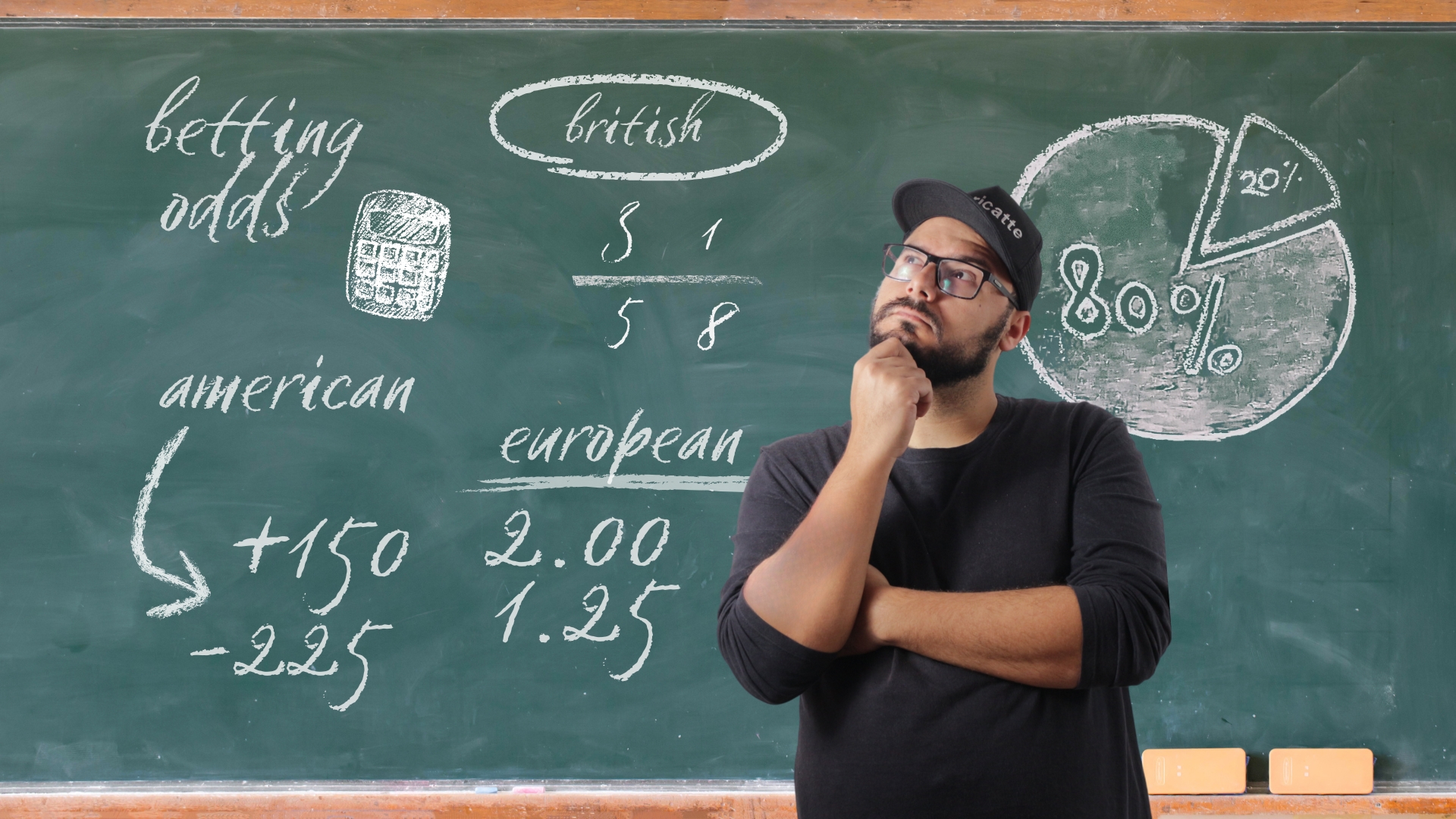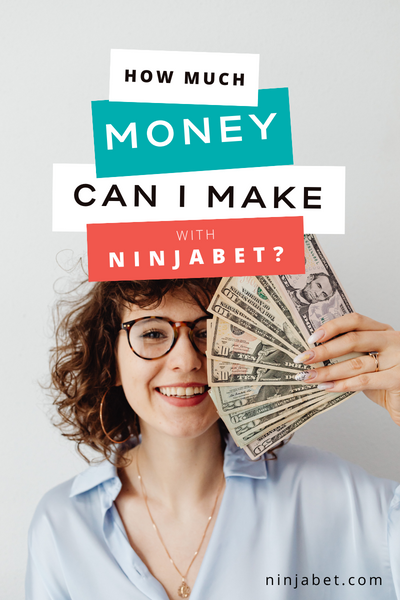Betting Odds Explained: Your Guide to Smart Betting
Uncover the secrets behind the numbers and learn how to bet smarter

Betting odds show how likely something is to happen and how much money you’ll win if it does. But odds are more than just numbers, they reflect a mix of risk, reward, and sportsbook strategy. In other words, they are the backbone of all betting activity.
Whether you’re placing a simple accumulator or crafting a complex matched betting strategy, understanding how odds work is essential. They are built from probability and shaped by market demand, expert analysis, and, importantly, the sportsbook’s need to make a profit. By learning what odds really mean, you can start making more informed betting decisions and even use them to your advantage through strategies like matched betting and arbitrage.
What Are Betting Odds?
At their core, betting odds represent the ratio between the stake and the potential winnings. They also reflect the sportsbook’s assessment of an event’s likelihood, adjusted to include their profit margin. Whether you’re backing a sporting event, political outcome, or entertainment contest, understanding what the numbers actually mean is your first step to betting smart.
The Three Types of Odds
Betting odds come in three main formats: decimal, fractional, and American. Each expresses the same basic information, your potential winnings and the probability of the outcome. But they do so differently depending on where you are in the world.
Decimal Odds
Common in Europe, Australia, and Canada, decimal odds show the total return for every unit staked. It includes your original stake in the final payout.
| Decimal Odds | Implied Probability | Total Return on $10 Bet | Profit |
| 1.50 | 66.67% | $15.00 | $5.00 |
| 2.00 | 50.00% | $20.00 | $10.00 |
| 2.50 | 40.00% | $25.00 | $15.00 |
| 3.00 | 33.33% | $30.00 | $20.00 |
Fractional Odds
Used mainly in the UK and Ireland, fractional odds show how much profit you’ll make based on your stake. For example, 3/2 means you win $3 for every $2 staked.
| Fractional Odds | Implied Probability | Total Return on $10 Bet | Profit |
| 1/2 | 66.67% | $15.00 | $5.00 |
| 1/1 (Evens) | 50.00% | $20.00 | $10.00 |
| 3/2 | 40.00% | $25.00 | $15.00 |
| 2/1 | 33.33% | $30.00 | $20.00 |
American Odds
Used in the United States, American odds are based around $100. Positive odds show how much profit you’d make from a $100 bet. Negative odds show how much you need to bet to make $100 profit.
| American Odds | Implied Probability | Bet Type | Total Return | Profit |
| +100 | 50.00% | Bet $100 | $200 | $100 |
| +150 | 40.00% | Bet $100 | $250 | $150 |
| -150 | 60.00% | Bet $150 | $250 | $100 |
| -200 | 66.67% | Bet $200 | $300 | $100 |
Each format looks different, but all three can be converted to one another and to implied probabilities to help guide smart betting decisions.
Implied Probability
Implied probability is the percentage chance of an outcome happening, based on the betting odds given. Understanding this helps you know whether a bet offers value. Here’s how you calculate it for each format:
- Decimal Odds: 1 / Decimal Odds = Probability
- Fractional Odds: Denominator / (Numerator + Denominator)
- American Odds:
- For positive odds: divide 100 by the sum of the odds and 100
- For negative odds, divide the absolute value of the odds by the sum of that number and 100.
Below is a comprehensive table showing equivalent values across decimal, fractional, and American formats, along with the implied probability:
| Decimal Odds | Fractional Odds | American Odds | Implied Probability |
| 1.20 | 1/5 | -500 | 83.33% |
| 1.25 | 1/4 | -400 | 80.00% |
| 1.33 | 1/3 | -300 | 75.19% |
| 1.50 | 1/2 | -200 | 66.67% |
| 1.67 | 4/6 | -150 | 59.88% |
| 1.80 | 4/5 | -125 | 55.56% |
| 2.00 | 1/1 (Evens) | +100 | 50.00% |
| 2.20 | 6/5 | +120 | 45.45% |
| 2.50 | 3/2 | +150 | 40.00% |
| 3.00 | 2/1 | +200 | 33.33% |
| 4.00 | 3/1 | +300 | 25.00% |
| 5.00 | 4/1 | +400 | 20.00% |
| 6.00 | 5/1 | +500 | 16.67% |
| 7.00 | 6/1 | +600 | 14.29% |
| 10.00 | 9/1 | +900 | 10.00% |
This kind of comparison is especially useful in matched betting and arbitrage strategies, where calculating and comparing implied probabilities can help spot profitable opportunities. It also highlights how sportsbooks may present odds differently, even though they’re offering the same underlying probability.
Profit Margin of Sportsbooks
Sportsbooks include a margin in their odds to ensure they make money over time. This is often called the sportsbook’s margin, and it’s built into the odds you see. When you convert all the outcomes’ odds into implied probabilities and add them up, they usually exceed 100%. That excess percentage is the sportsbook’s built-in profit.
Let’s say the odds for the Wimbledon men’s final are:
- Player A: 1.60 (implied probability = 62.50%)
- Player B: 2.30 (implied probability = 43.48%)
- Total implied probability: 105.98%
- Sportsbook’s margin: 5.98%
As you can see, the sportsbook doesn’t need to predict the winner correctly. If they receive balanced betting, meaning equal money placed on each outcome, weighted according to the betting odds, they’ll make a profit regardless of the result.
Let’s imagine they collect:
- $7.2 million in bets on Player A at 1.60
- $5 million in bets on Player B at 2.30
They would potentially pay out:
- If Player A wins: $7.2M × 1.60 = $11.52M
- If Player B wins: $5M × 2.30 = $11.50M
In this case, the sportsbook has received a total of $12.20M in bets. If Player A wins, the sportsbook will have a profit of $680,000. And if Player B wins – $700,000.
Parlays and How Odds Combine
In a parlay bet, you combine two or more individual selections into one bet. To win, all selections must be correct, but the potential payout is much higher than betting on each outcome separately. With decimal odds, you simply multiply the odds together. For example, two selections at 1.80 and 2.00 combine to give 3.60 (1.80 × 2.00). For fractional and American odds, it’s easiest to first convert them into decimal, multiply, and then convert back if needed.
While parlays can offer big returns, they also multiply the sportsbook’s margin. That’s because each individual selection carries its own implied probability (and built-in margin), and when you combine them, those small edges stack up. The total implied probability of a parlay is lower than it appears, making it harder to win. That’s why parlays are very profitable for sportsbooks.
0% Margin Promotions
Sometimes sportsbooks offer “0% margin” or “fair odds” as a special promotion, where the implied probabilities of all outcomes add up to exactly 100%. These are rare and often limited-time, but they offer better value for bettors.
Arbitrage Betting
Arbitrage betting takes advantage of different odds offered by different sportsbooks for the same event. If Sportsbook A and Sportsbook B disagree enough, it’s possible to place bets on all outcomes and guarantee a small profit. And if they decide to do a 0% margin promotion. This is also called “sure betting.”
Sometimes, a 0% margin promotion from one sportsbook can create an arbitrage opportunity if another sportsbook has a different expectation for the outcome. For example, if one site offers fair odds as part of a promo and the other is leaning heavily toward one side, the difference in odds might be enough to lock in a profit by covering both outcomes.
Let’s take a look at one example for an upcoming game between Carlos Alcaraz and Jannik Sinner and their odds on FanDuel and DraftKings:
- FanDuel: Alcaraz to win @ 2.25
- DraftKings: Sinner to win @ 2.00
By staking the correct amount on each outcome, you lock in profit regardless of who wins. You just need a tool to calculate the right amount to bet with both sportsbooks. In our example, if you bet $100 on Alcaraz with FanDuel and $112.50 on Sinner with DraftKings, you will always end up with a profit of $12.50.
Betting Exchange and Its Margins
Unlike traditional sportsbooks, a betting exchange acts as a marketplace where people bet against each other rather than against the house.
The betting exchange doesn’t set odds or build margins into them like sportsbooks do. Instead, it charges a small commission, usually between 2% and 5%, on any net winnings you make. This commission is how the exchange makes money.
For example, if you win a $100 bet on a betting exchange with a 5% commission, you’ll pay $5 to the exchange as a fee, keeping $95. If you lose, there’s no commission charged.
Because the odds on exchanges are set by the market, based on what other users are willing to bet, the margins tend to be lower than traditional sportsbooks. This makes exchanges popular for matched betting, where you rely on placing opposing bets on the same event with a minimum loss.
Matched Betting and How to Make Money With It
While understanding betting odds and implied probabilities helps you read the betting market, matched betting is really about taking advantage of sportsbook promotions.
Sportsbooks build a margin into their odds, meaning the total implied probabilities add up to more than 100%. This ensures they profit over time. However, to attract new customers or keep existing ones, they often run promotional campaigns that give you free bets or bonuses.
Matched betting works by using these promotions to guarantee profits regardless of the outcome. Here’s the key:
- You place a qualifying bet with your own money at the sportsbook’s odds, which include their margin.
- At the same time, you place an opposing bet on a betting exchange (if your qualifying bet was Over 2.5 goals on the upcoming game between Barcelona and Real Madrid, on the exchange you bet on the same match and the market Under 2,5 goals).
- This offsets your risk because the betting exchange odds are closer to the true implied probability of the event.
- The qualifying bet may result in a small qualifying loss, but it unlocks a free bet or bonus.
- You then use this free bet to place another bet, again matched with its opposing outcome on the exchange.
- Because the free bet is “house money,” this second set of bets locks in a profit regardless of the result.
FAQ
Q1: What are betting odds and why do they matter?
Betting odds show the likelihood of an event happening and how much you can win. Understanding odds helps you make smarter bets and identify value.
Q2: Why do sportsbooks use different types of odds, and does it affect my betting?
Sportsbooks use decimal, fractional, or American odds depending on where they operate and what people are most familiar with. While the formats look different, they all represent the same information. How much you can win and the implied probability of an outcome. Choosing between them is mostly a matter of personal preference or regional custom, and won’t affect your actual chances or potential profits.
Q3: What is implied probability?
Implied probability is the chance an outcome is expected to happen, based on the odds offered.
Q4: How do sportsbooks make a profit?
Sportsbooks build a margin into their odds, meaning the total implied probabilities of all outcomes add up to more than 100%. This ensures they profit over time.
Q5: What is a betting exchange and how is it different from a sportsbook?
A betting exchange lets you bet against other people, not the house. It charges a small commission on winnings instead of building a margin into the odds.
Q6: What is matched betting and is it legal?
Matched betting uses free bets and promotions from sportsbooks to guarantee profits. It’s legal because you’re simply placing bets, not cheating or hacking.
Q7: What is a qualifying loss in matched betting?
Qualifying loss is the small amount you might lose during the initial bet to unlock a free bet. It’s usually minimal compared to the profits from the free bets.
Q8: Can I make money with arbitrage betting?
Yes, arbitrage betting lets you profit by betting on all outcomes with different sportsbooks offering favorable odds. But it requires fast action and can lead to limitations by sportsbooks.
Get Started with Matched Betting?
Matched betting might sound complicated but it doesn’t have to be. The truth is, once you understand the basics and follow the right steps, it becomes a simple and repeatable way to profit from sportsbook promotions. Are you ready to unlock the full potential of matched betting? You don’t need to do it all on your own.
Join us and get access to step-by-step guides, tutorials and all tools you will need for calculation and odds matching. Start with your FREE account today and turn every bonus into a real opportunity.
ℹ️ Matched betting is not gambling, but it still requires careful execution. Always read the terms of each promotion.
Be the First to Know!
Get notified every time we publish a new article


Orlin Bakalov
@ninjabet
Hey! Hope you found this article useful and informative. If you enjoyed reading it or have any lingering questions about it, feel free to email us at [email protected]. Our team is always here to lend a hand and answer all your questions 😉. Also, we’d love to hear your brilliant suggestions for our next post! Is there a specific topic you’d like to dive into? Let us know! We’re all ears and ready to serve up the content that you want to read. Well, thanks again for being a part of our amazing NinjaBet community! I’ll look forward to hearing from you soon.











